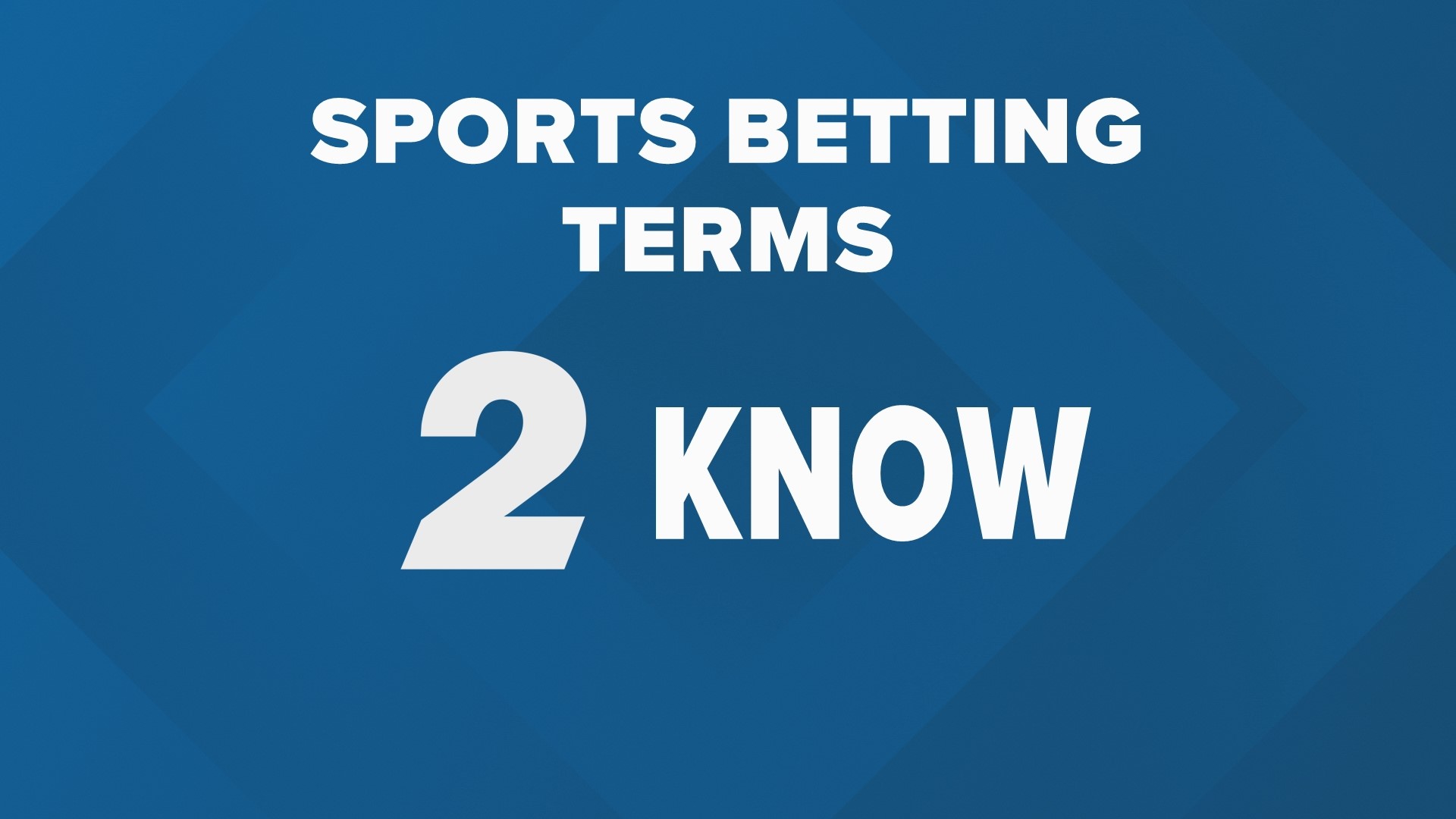GREENSBORO, North Carolina — You've seen the ads, the constant ads, letting you know sports betting becomes legal in North Carolina on March 11.
But if you're new to betting there are a few terms you might want to know, that will help you understand exactly what it is you're doing.
We spoke with Jared Lee Smith, a betting analyst with Fox Sports Radio, and he helped define and explain some of the most common terms.
Spread
"It is a number that is placed on by the sports books that a certain team has to win the game by. So if it's, let's say the Charlotte Hornets and they've got to win by three points, the spread is three. If they win by four, you win your bet. If they win by two, you lose your bet."
Cover
Cover is directly related to the "spread."
"A cover is when that team covers the spread. So you know, the Carolina Panthers are favored by six and a half points. They end up winning by seven. You covered right there. That was a cover for Carolina."
MoneyLine
"Straight up win." Moneyline bets offer a simple choice. You just have to pick the winner. Determining the amount of money you'll earn if you pick a winner is not as simple, as Smith explains:
"Every game has an underdog and a favorite and who you bet on determines the payout that you could receive from that bet. Here is a deeper explanation by Jared: "So you'll get a team that is a favorite on the money line, which means you have to lay money. So let's say you see on your odds screen '-200'. Well, that team is the favorite on the money line. We call that a $2 favorite. That's just terminology that we use. But what it means is to win $100, you have to risk 200. So if I give you $200, you're the sports book, that team wins, you'll give me 300 back, my stake, my $200 that I gave you plus the $100 that I won. But there are also underdogs on the money line. So let's say a team is '+200'. Well, then I'll give you $100 for a bet. If they win, you'll give me 300 back, right? My original stake plus the $200 that I won, that is an underdog on the moneyline."
Parlay
If you've seen Pirates of the Carribean you've heard Jack Sparrow invoke "a parlay." Unfortunately in the betting world it has nothing to do with pirates. A parlay is a bet that has multiple parts, each of those parts has to win for the total bet to cash. All it takes is one missed pick to sink your bet but the higher risk often comes with a higher payout in the end.
Odds
You'll find a favorite or underdog in any game you bet on. The odds reflect the winnings you'll earn based on how much you wager.
'"For the most part, you'll get a favorite and an underdog every single game. The favorite, you'll have to lay money in order to bet that team on the money line. For the underdog, you'll take money. It's a plus 200 or a minus 200."
Bad Beat
A bad beat can break your heart or make your day depending on what side of the bet you are on. You see Bad Beats when teams score an uncovered basket in a basketball game, or when an NFL team scores a garbage time touchdown to cover the spread. But if you're running into a lot of "bad beats" then you're doing something right, according to Smith.
"I always tell people the more you bet and the better you are at betting, the closer you are to being around the number, you're going to have more bad beats. It's just kind of, you know, the cost of doing business, the more volume, the more wagers you make, the odds of it being one that you should have won, but didn't, or I've seen on the other side, a good, a bad win, right? I've had bets where I shouldn't have won, but I did. It does work both ways. You tend to only remember the bad beats, but I promise you it does tend to balance out over the long haul if you do this in, you know, for a long time."
VIG
Now we are in the nitty-gritty. I won't waste your time trying to explain this because our expert Jared Lee Smith does it best:
"Vig is like basically the tax that you make on every single wager. So you see a minus seven next to a team. That means you have to lay seven points in order for that team to win. But then you see a minus 110 next to that. That can be very confusing. That is the price or the tax that you have to pay for that bet to make that bet. So what that means is it's the same as an underdog on the money line or on the favorite. So, you know, minus 110 is you have to $110 wins you 100. Every single bet that you make at a sportsbook has a VIG or a tax associated with it. That is how the sportsbook makes money, similar to how you pay a sales tax on any time you go to the grocery store to buy groceries. "

